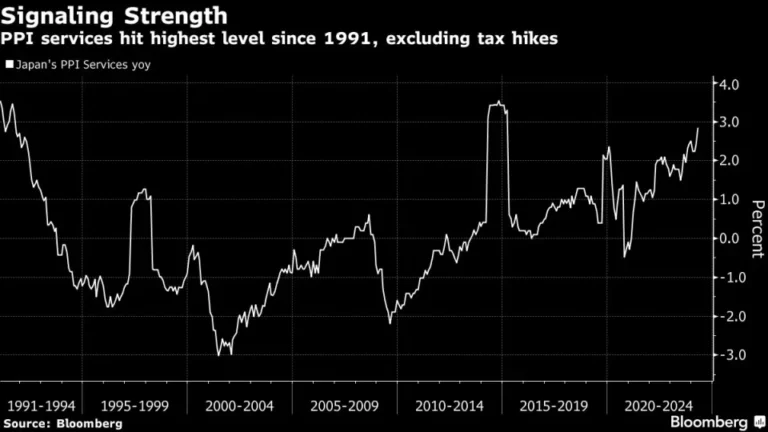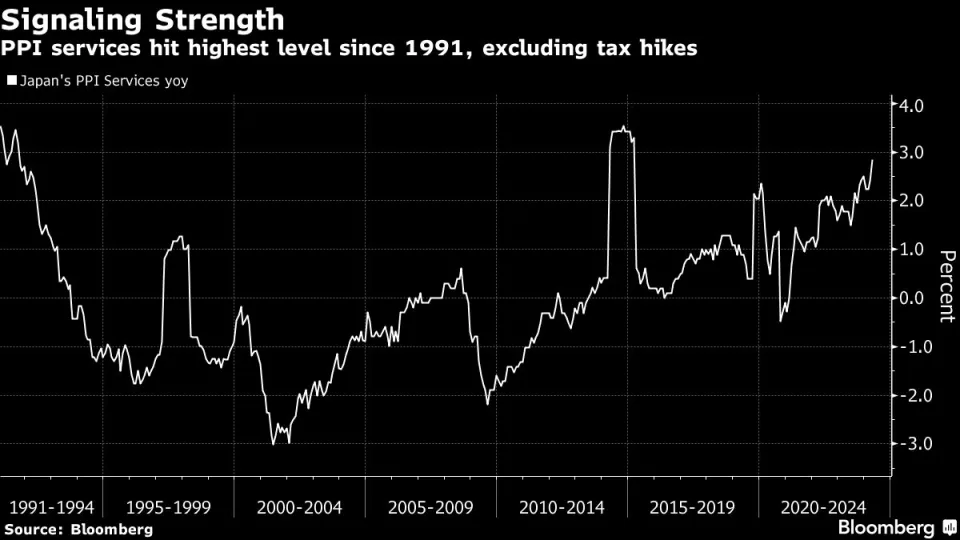
Japan’s service prices have recorded the highest increase in over 30 years, indicating a broader trend of inflation and reinforcing the case for the Bank of Japan to raise interest rates. The services producer price index, which measures the cost of goods and services provided by businesses to other entities, rose by 2.8% compared to the previous year, surpassing economists’ expectations of 2.3%. The Bank of Japan has emphasized the significance of service prices as a gauge of inflation’s impact on the wider economy. This data suggests that inflation may be sustained, prompting speculation of a potential BOJ interest rate hike.
Tuesday’s data could prompt the central bank to reconsider the timing of its next interest rate hike, following the increase in borrowing costs in March, the first hike since 2007. According to a survey by Bloomberg in April, around 41% of BOJ watchers predict October as the likely time for the next rate hike, with many of them highlighting the possibility of an earlier move in July as a risk scenario.
While central banks worldwide have previously taken aggressive measures to raise interest rates and combat inflation, the BOJ has adopted a more cautious approach after years of efforts to stimulate a wage-price cycle that supports economic growth.
However, the BOJ’s cautious stance has put pressure on Japan’s currency, creating a divergence with US interest rates, and has resulted in inflation remaining above its 2% target for over two years, leading to concerns among voters.
According to a survey conducted by the Nikkei newspaper in May, the majority of people want Prime Minister Fumio Kishida to prioritize addressing inflation as a policy task. The survey revealed that 39% of respondents believe that additional measures are necessary to combat the rising prices.
BOJ Governor Kazuo Ueda and Deputy Governor Shinichi Uchida expressed on Monday that there is room for a gradual increase in interest rates, given that the country has moved away from the previous inflation target of 0%.
